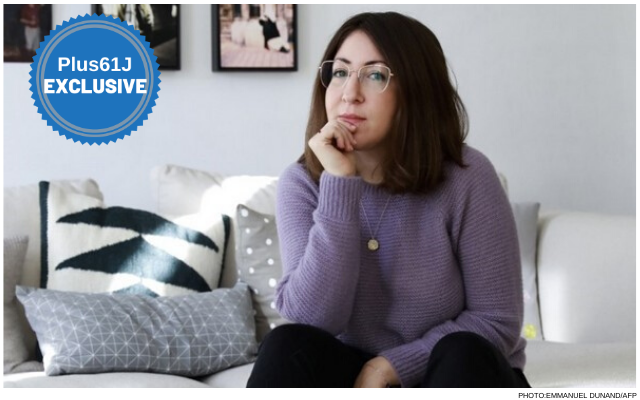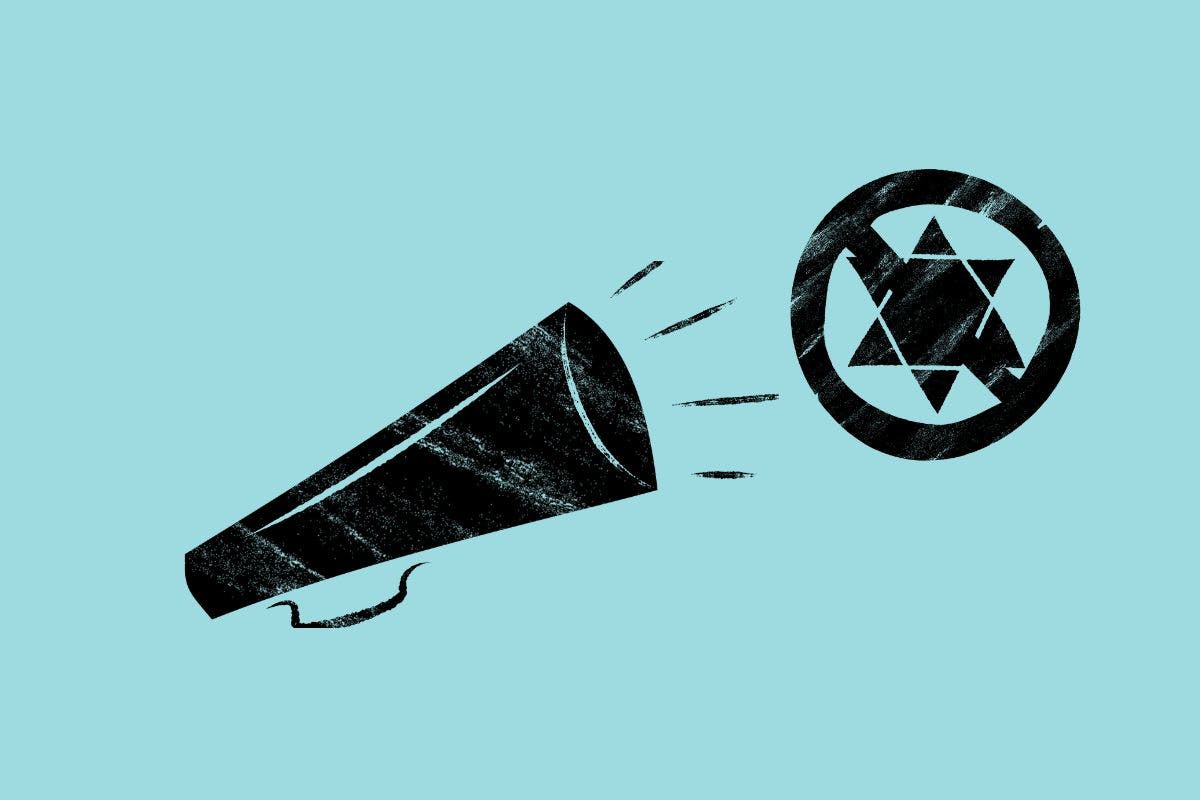Published: 28 May 2020
Last updated: 4 March 2024
TALKING TO DEBORAH FELDMAN, the author of Unorthodox, her candid bestselling memoir of escaping the Satmar community in Williamsburg in Brooklyn, is a brisk affair. She is unhesitating and definite in her answers. Which is fortunate, as we have a very limited window.
Speaking by phone in Berlin, where she has made a new life since 2014, Feldman is eloquent and outspoken but speaks fast to cram in her opinions; in 25 minutes, it’s someone else’s turn.
Talking about the new interest in Jewish culture as demonstrated by TV shows, including the adaptation of Philip Roth’s The Plot Against America, The Marvelous Mrs Maisel, Shtisel and now Unorthodox, Feldman says: “For centuries, no matter how integrated Jews were in mainstream culture, they were always integrated incognito.
“They were very influential in Hollywood and yet always avoided telling overtly Jewish stories, as if they were afraid of seeing a Jewish narrative as part of mainstream culture. They subsumed their identity.
“Now everything that was on the margins is part of the middle. Jewish identity today has a new level of willingness to bring Jewish stories into the mainstream and to trust wider audiences with them. For the first time in centuries, there is more of a sense of being comfortable in the outside world.”
For centuries, no matter how integrated Jews were in mainstream culture, they were always integrated incognito. Now everything that was on the margins is part of the middle. Jewish identity today has a new level of willingness to bring Jewish stories into the mainstream.
When it comes to her own viewing, Feldman is a big fan of the TV adaptation of Elena Ferrante’s My Brilliant Friend. “There was some overlap between my story and the story of those two young women. I identified with the character of Lila who thinks that her life is going to change when she marries and then her life falls apart.
“But also with her friend Lenu, who goes out into the world, takes more risks and gets closer to her inner truth as a result of not staying in her comfort zone.”
Feldman has been living through the COVID-19 pandemic in Berlin with relative ease: “We never had an extreme lockdown. Even at the worst phase we could go outside, do sports, meet people. Berlin has a low population density and lots of green space, so we have not suffered much.
“Things have relaxed more, so we feel like life is back to normal, though my son is going to school only once a week for now. The health system is very strong and also Germans keep their distance, it’s not a hugging and kissing culture like Spain and Italy.”
Feldman has used the hiatus from normal life to promote the TV series which launched on Netflix around the world during the pandemic but also as a time for reflection and reappraisal.
“If anyone is doing any serious writing right now, there is something wrong with them,” she jokes, though she adds that she does have a new project, a novel she is writing in German about the last shtetl in Europe and a modern-day female prophet who turns it upside down. She has promised herself that she will get back to it when summer is in full swing.
[gallery columns="1" size="large" ids="34629"]
Just a few weeks ago, police in Brooklyn broke up a large Chasidic wedding at the height of the pandemic. Feldman thinks the Satmar community, which she left for a new life in Germany, would have had a unique response: “they consider every crisis, no matter how big or small, as a message from god and believe that the only reasonable way to respond is to see it as a punishment and to appeal to god through ritual and prayer.
“But because no value is assigned to prayer by individuals at home, it has to be done collectively. The collective is so valued that there is no understanding about how to live an individual life, which is something the virus demanded.
“Because that demand came from outside, from local government and other authorities, regarded as the enemy, there was this drive out of spite and the desire to assert one’s identity against what is perceived as an external threat, so they would have invested more effort into collective prayer and ritual than at any other time.”
I've heard from people that there was a mass exposure event [in Brooklyn] around the time of Purim, of up to 90 per cent of the community. As a result, they feel they can return to normal life more quickly, because they have reached a high degree of immunity.
Feldman says that behind the scenes, “the Chasidic community has been hit hard but it is difficult to know how badly. They are not likely to seek medical help from the outside, they have their own healthcare system. I’ve heard from people inside, that that there was a mass exposure event around the time of Purim, of up to 90 per cent of the community because Purim is an endless permutation of mingling as the tradition requires one to visit each person’s home to deliver a gift and drink with them.
“There would have been intense contact over and over, so it would have been impossible for the virus not to have reached a majority of them. As a result, they feel they can return to normal life more quickly, because they have gone through it and reached a high degree of immunity.”
[gallery columns="1" size="large" ids="34627"]
We get on quite well, Feldman says of her ex-husband. Our relationship grew six or seven years ago when he wrote me a letter of appreciation for what I had done for our son and for being the trigger in his search for his own happiness.
These days Feldman lives in Berlin with her son Yitzi, who is now 14. He makes regular visits to the US to see his father, who left the Satmar community several years after Feldman did, a part of the story that did not make it into the hugely successful TV adaptation of her memoir. Her ex-husband has since remarried and has two children.
“We get on quite well,” Feldman says of her ex-husband. “Our relationship grew six or seven years ago when he wrote me a letter of appreciation for what I had done for our son and for being the trigger in his search for his own happiness. Since then we have developed a sense of trust and common ground. I can’t speak for him about the TV series, but my son thinks he feels it has been a positive experience.”
Her relationship with her mother, however, has not resolved itself as positively as in the TV version. After a five-year attempt at rapprochement by Feldman, the two are currently not in contact.
Feldman has a partner but sees romantic life as an adjunct to the main event: her independence. “I need to be enough for myself,” she says firmly.
[gallery columns="1" size="large" ids="35711"]
Israel is leaning increasingly towards a theocracy; the ultra-religious is quickly becoming the majority so that increasingly the secular votes will not count. What we will see is democracy being replaced by the equivalent of shariah. That is the future of Israel and anyone who has not confronted that truth is in denial
After the trauma of her marriage in total sexual ignorance at the age of 17, how did she develop the capacity for intimacy? “Very early on, when I left, I got lucky. I had a radar for people who were kind, even when I kept my personal walls high,” she explains.
Now that she is a public figure, those walls are no longer metaphorical: she has had to keep her address in one of the city’s most cosmopolitan boroughs secret because of threats from neo-Nazis and other extreme right-wing organisations.
Feldman has visited Israel twice and does not mince her words about the issues she believes threaten its political destiny: “It is leaning increasingly towards a theocracy, because of the compromises that have been necessary over the last decades between the ultra-religious and the secular. The ultra-religious is quickly becoming the majority so that increasingly the secular votes will not count.
“What we will see is democracy being replaced by the equivalent of shariah. That is the future of Israel and anyone who has not confronted that truth is in denial and that denial is very destructive.”
Growing up without role models, she does not look to public figures as sources of inspiration: “I prefer to find that in the lives of ordinary, private women who in their own modest everyday lives are emancipating themselves from oppressive situations,” she says, before apologising that my time is up.
Poland is on the line, waiting to talk to her.
HEAR DEBORAH FELDMAN IN CONVERSATION
Deborah Feldman will be speaking on Thursday, June 4, from 8pm-9.15pm, in an online panel titled Unorthodox - stories of escape. The discussion will also include broadcaster and author John Safran, Dassi Erlich and US trans activist Abby Stein. Tickets are free via Zoom;
REGISTER HERE
The panel is presented by the Festival of Jewish Arts and Music (FOJAM) in partnership with The Jewish Independent, Pathways Melbourne and Melbourne Jewish Book Week




